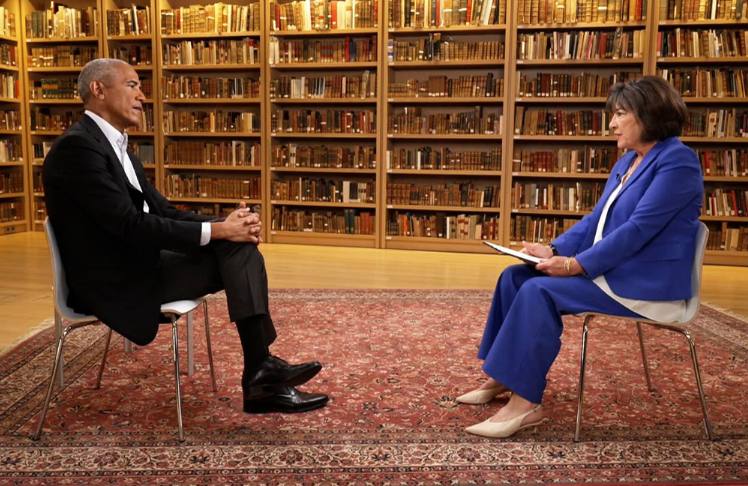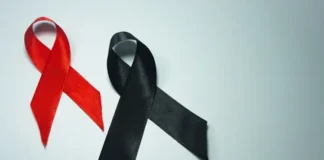
By Kevin Liptak, CNN
(CNN) — Democratic institutions in the United States and around the world have grown “creaky,” former President Barack Obama warned in an exclusive CNN interview Thursday, and it remains incumbent on American leaders to find ways to sustain them into the future.
He told CNN Chief International Anchor Christiane Amanpour that the federal indictment of his successor Donald Trump is evidence the rule of law still reigns – for now – in the United States.
And he said the western effort to ensure Ukraine’s sovereignty is vital toward the long-term protection of democracy.
But Obama said there were still signs democratic norms are being eroded. And he warned economic and social inequities would only make it harder to sustain healthy democracies moving forward.
“I do believe that democracy will win if we fight for it,” Obama told Amanpour in Athens, where he is discussing issues of democracy. “Our existing democratic institutions are creaky, and we’re going to have to reform them.”
The full interview with Obama airs at 10 p.m. ET on CNN in a hour-long special, “Obama & Amanpour: Will Democracy Win?”
In it, the former president offered a wide-ranging view of global democratic and political issues – including Trump’s indictment earlier this month, which he acknowledged sends a suboptimal message to the rest of the world.
“It’s less than ideal,” he said. “But the fact that we have a former president who is having to answer to charges brought by prosecutors does uphold the basic notion that nobody’s above the law and the allegations will now be sorted out through a court process.”
He said more concerning than Trump’s actions themselves is a broader effort to “silence critics through changes in the legislative process” or “intimidate the press.” He said those efforts are “right now most prominent in the Republican Party, but I don’t think it’s something that is unique to one party.”
“Having been president of the United States, you need a president who takes the oath of office seriously,” he said. “You need a president who believes not just in the letter but in the spirit of democracy.”
Obama’s trip this week to Greece marked a return to the site of one his final foreign stops as president. In 2016, shortly after Trump had been elected his successor, Obama hailed the enduring power of American democracy from the ancient birthplace of the system.
Back then, as his supporters back home and foreign counterparts alike worried about the future under Trump, Obama said American democracy was “bigger than any one person.”
He lent symbolism to his commitment to democratic ideals when he climbed the Acropolis in central Athens and toured the Parthenon, the 2,500-year-old temple built by ancient Greeks dedicated to the goddess Athena. He also toured the museum constructed near the site that houses antiquities from the era.
Since then, however, concerns both about American and global democracy have only intensified. Trump’s false claims about the 2020 election and the ensuing insurrection attempt at the US Capitol laid bare how fragile the American system remains. And autocrats around the world have consolidated power.
Meeting with dictators or other anti-democratic leaders is just one of the complex facets of the American presidency, Obama said, recalling he dealt with many figures he didn’t agree with during his time in the Oval Office.
“Look, it’s complicated,” Obama said. “The president of the United States has a lot of equities. And when I was president, I would deal with figures in some cases who were allies, who, you know, if you pressed me in private, do they run their governments and their political parties in ways that I would say are ideally democratic? I’d have to say no.”
The comments came just hours before the White House rolled out the red carpet for Indian Prime Minister Narendra Modi at an official state visit. Modi has been accused by human rights groups of a drift toward authoritarianism but is also the leader of the world’s most populous democracy and is seen by the White House as an important bulwark against China’s growing influence.
Obama cited his work with Chinese President Xi Jinping on climate change as an example of finding common interests, even with leaders with poor human rights records. This week, Biden likened Xi to a dictator in comments to donors in California.
“You had to do business with them, because they’re important for national security reasons. There are, you know, a range of economic interests,” Obama said.
“I do think that it is appropriate for the president of the United States, where he or she can, to uphold those principles and to challenge –whether behind closed doors or in public – trends that are troubling. And so I’m less concerned about labels than I’m concerned about specific practices,” he went on.
Modi, who is being fêted by Biden on Thursday, has demonstrated a drift toward authoritarianism that has worried the West. He’s cracked down on dissent, targeted journalists and introduced policies that human rights groups say discriminate against Muslims.
Obama acknowledged that he also worked with Modi on climate change and other areas. But he said that raising concerns about Indian democracy must also enter into diplomatic conversations.
“Part of my argument would be that if you do not protect the rights of ethnic minorities in India, then there is a strong possibility India at some point starts pulling apart. And we’ve seen what happens when you start getting those kinds of large internal conflicts,” he said.
While in Greece, Obama also met with participants from the Obama Foundation Leaders program. The leaders from Africa, Asia and Europe participated in group sessions with the former president and offered presentations of their work toward advancing democracy and finding solutions to societal issues.
Obama said in the interview that no democracy could thrive with high levels of social or economic inequality. He used the example of an overcrowded migrant boat that sank in the Mediterranean this month, killing hundreds, that received comparatively little attention as a missing submersible around the wreckage of the Titanic.
“In some ways, it’s indicative of the degree to which people’s life chances have grown so disparate,” he said.
The-CNN-Wire
™ & © 2023 Cable News Network, Inc., a Warner Bros. Discovery Company. All rights reserved.















